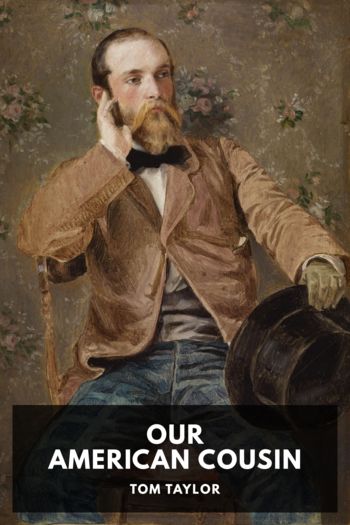Daughters of the Summer Storm by Frances Statham (best sci fi novels of all time .TXT) 📗

- Author: Frances Statham
Book online «Daughters of the Summer Storm by Frances Statham (best sci fi novels of all time .TXT) 📗». Author Frances Statham
"It is more private this way, menina," he finally said. "The priest is waiting to see you before the ceremony."
Maranta nodded. To hear her confession, before she received the marriage sacrament. That was the custom.
And when that was done—when she had confessed her anxieties and her mild displays of temper on the long, hard journey—she met Vasco at the altar. While she knelt, Vasco sat beside her in a chair, with Patû directly behind him.
Vasco placed the heavy gold band on her finger and the bracelet upon her arm, showing his ownership. And Maranta knew then that she was no longer the same. She was a married woman—no longer the yayá, the pampered young daughter of the household.
The statues glittered with magnificent jewels—emeralds, diamonds, and gold—for the chapel of the fazenda was not only a place for prayers and sacraments. It was the repository for anything of value that belonged to the family. Hidden under the marble squares of the floor was the strong box that contained the Monteiro money. And the jewels, in plain view, were completely safe, guarded over by the saints that no one would dare to rob, upon pain of eternal damnation.
In vain, Maranta searched for Innocencia, but she was not present. The only ones to witness the ceremony besides the conde were the condessa and Dona Isobel—they and the barefoot Indian girl who fled when Maranta saw her hiding in the gallery above.
"Welcome to the Monteiro family, my daughter," the condessa said, kissing Maranta on both cheeks.
"Th-thank you, Mãe," she answered with affection. And the condessa's face showed her pleasure in Maranta's acceding to her wishes in calling her mother.
Dona Isobel kissed her and wished her well. Dom Ruis stood apart from them all, offering no words of congratulations to his brother, Vasco—no words to indicate he was happy to have Maranta Tabor as a member of his family, living in his fazenda, perhaps for the rest of her life.
His attention focused on the priest instead, who was anxious to return to an old man who lay dying in the hut at the northern boundary of the Monteiro property. Ruis ignored the wedding party to accompany the man to the carriage waiting at the steps of the chapel.
The quiet celebration came at dinner late that night, with the wine and the love cake that had been specially prepared in the kitchen.
Vasco, with Maranta at his side, watched as she spied the marriage symbols made of sugar and cinnamon and manihot flour that decorated the top of the cake. When she recognized what they were intended to be, Vasco laughed at her obvious embarrassment.
He leaned toward Maranta. "Do not blush, my beautiful bride. It is the servants' way of saving they wish a happy marriage for us—with many children." Again he laughed and tweaked the loose curl at her neck.
"You must cut the first piece and give half to me, wife." He handed the silver knife to her. Obeying him, Maranta closed her eyes while she sliced through the suggestive decoration.
Was she mistaken? Was Vasco capable of being a real husband—of sharing her bed and siring children?
At the thought, her hand trembled, and she dropped part of the cake. No one seemed to notice, with the exception of Dom Ruis, who sat at the head of the table and sipped his wine, while his dark sapphire eyes remained on Maranta.
"I am tired, Patû," Vasco said suddenly. "I would like to go to my rooms." He turned to Maranta. "Sleep well, and I shall see you in the morning."
Visibly relieved, Maranta smiled at him. "Good night, Dom Vasco."
The Indian lifted the man from his chair, and Maranta watched as they left the dining room.
"Vasco," the Indian girl whispered, emerging from the hallway. Through the open door, Maranta saw her new husband reach for the girl's hand, and somehow, Maranta's relief was dulled by his action.
"If you will excuse me, Ruis, I think I shall retire, also." The condessa looked tired and strained. Ruis, with concern for his mother showing in his dark-tanned face, nodded and stood while the condessa departed with Dona Isobel behind her.
Now there were only the two of them left—Ruis and Maranta. Panicking at the sudden change, she hastily pushed back her chair to flee from the room. "If you will excuse me, also. . ."
"Sit down and finish your wine, Maranta," he ordered.
"But I. . ."
"There is no need for you to leave so abruptly—even though your husband has deserted you on your wedding night."
Reluctantly, Maranta sank to her chair. Tears came to her dark doe eyes. It was obvious to everyone that Vasco was not overjoyed to have her as his wife. But did Ruis have to be so cruel as to voice it aloud?
Maranta made a pretense at sipping her wine, but it remained at the same level. She could not swallow anything for the lump in her throat.
Noticing how upset she was, Ruis dismissed her. "You may go, Maranta, if you wish. I see that you will never succeed in finishing your wine."
When she was almost to the door, he asked, "Do you know which direction to take to your new rooms, menina?"
"New rooms?" She stopped. "Don't I have the. . . the same room as before?"
"No. You have been given the apartment next to the library—adjacent to the gallery of the chapel. I will ring for Sassia. She will show you."
The servant had evidently been expecting the summons, for it took her little time to reach the dining room.
"The senhora wishes to go to her rooms. Will you please show her the way, Sassia?"
Maranta felt at a disadvantage, with Dom Ruis giving orders. Once again, she felt insignificant, realizing how completely she was subject to the whim of the arrogant Count of Sorocaba, who had the power of life and death in his hands.
The candles of myrtle wax lit the way along the hall—taking her farther from the main part of





Comments (0)